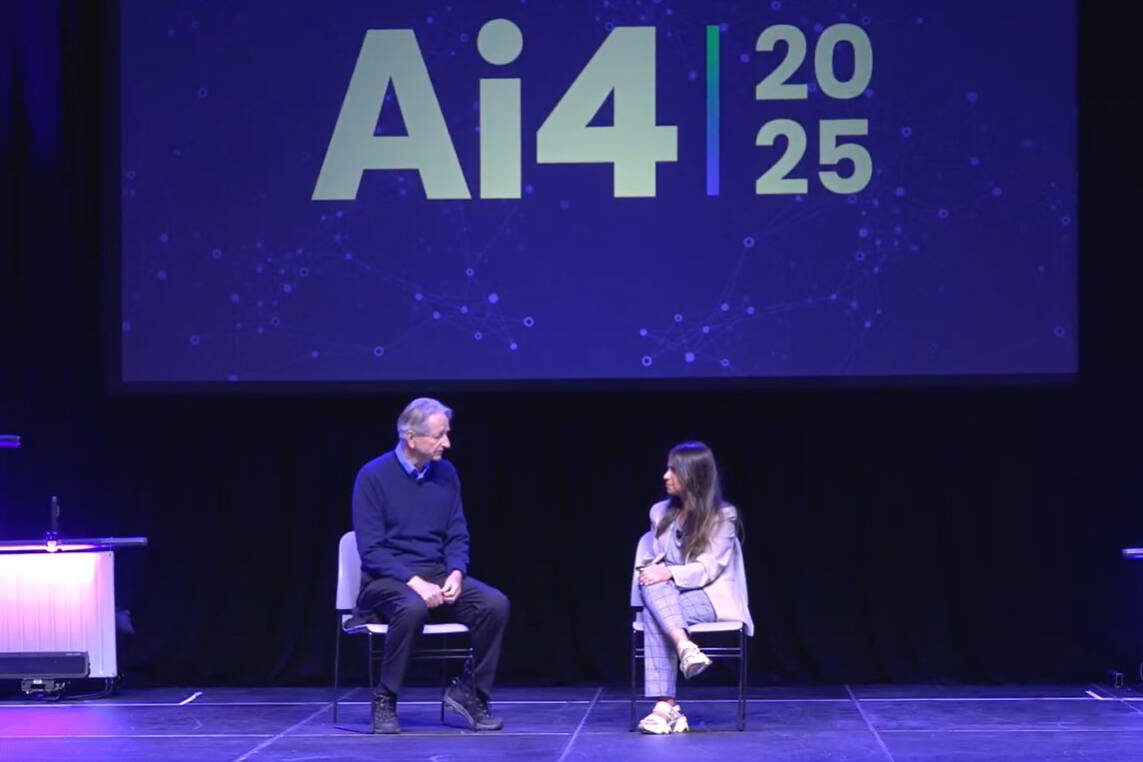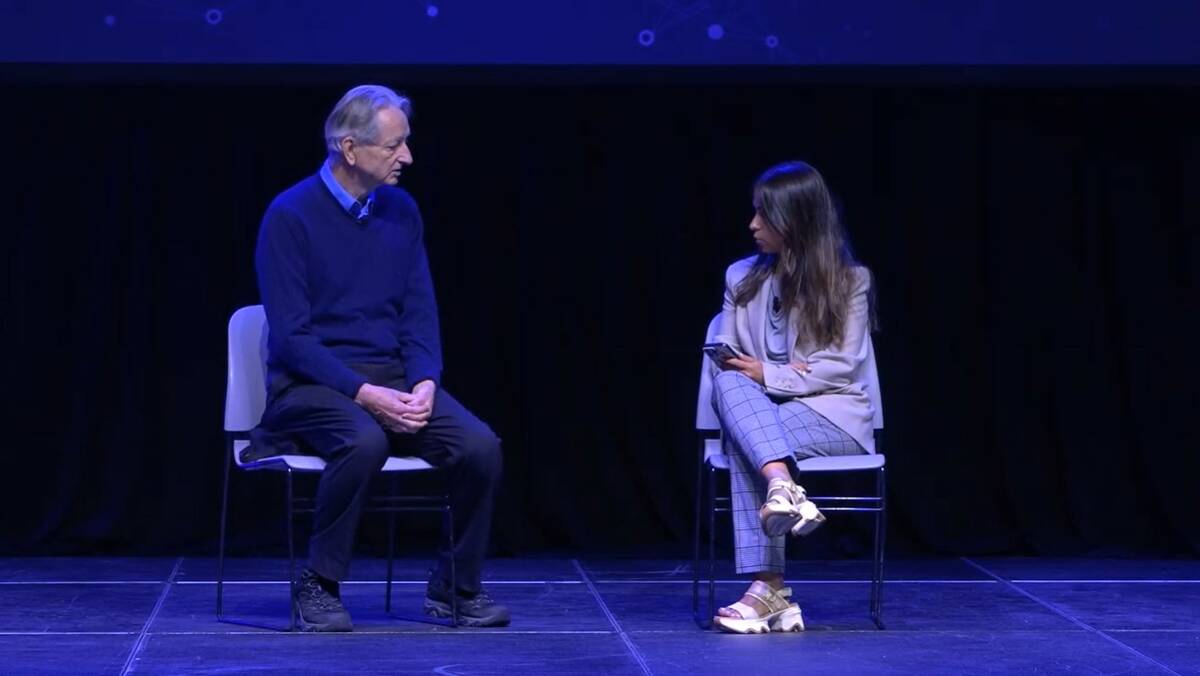‘They’re going to be much smarter than us’: AI pioneer speaks at Las Vegas conference
Geoffrey Hinton, the “godfather of AI,” proposed an “AI mother” model, during his keynote in Las Vegas last week.
“We need AI mothers rather than AI assistants,” said Hinton. “We have to make it so that when they’re more powerful than us and smarter than us, they still care about us.”
During his Aug. 12 speech at the Ai4 conference at the MGM Grand, Hinton spoke about all things AI, including the launch of GPT-5, how humans are getting AI wrong and when we’ll reach Artificial General Intelligence, or AGI.
Hinton won a Nobel Prize in physics in 2024 for his work on artificial neural networks and the creation of the Boltzmann machine, a neural network used to discover properties in data.
Inspired by the brain, artificial neural networks are fundamental parts of AI learning models using interconnected neurons or nodes to allow for pattern recognition, analysis and other AI outcomes.
AGI, GPT-5, the AI Mother
AI large language models of today, like ChatGPT, need humans to input data for them to spit out an answer or solve a problem. AGI, or super intelligence, is a step further, needing no human intervention and surpassing all cognitive human capabilities.
“Very few people who are experts in AI think we’re not going to get there (AGI),” said Hinton. “Almost everybody thinks we’re going to get super intelligence.”
Hinton said a “reasonable bet” for reaching AGI is five to 20 years. His estimate now shrunk from his previous time range of 30 to 50 years.
Some have proposed the launch of GPT-5 from OpenAI is a step towards super intelligence. Although Hinton said it “might have been a small backwards step,” to which the crowd hemmed and hawed, but he gave no further explanation.
More technical and engineering breakthroughs will be needed to reach AGI, said Hinton, but with the amount of money going into the technology, progress has increased significantly from the past.
One of the main risks of AI, and even more so AGI, is it gaining more control or overtaking humans, furthermore, putting humanity at risk. But, Hinton says “people have been looking at it all wrong,” specifically tech bros.
“People have been saying, because they’re tech bros, ‘We have to stay in control of these AIs. We’ve somehow got to be stronger than them. We’ve got to be dominant, and they’ve got to be submissive,’” said Hinton. “That’s not going to work. They’re going to be much smarter than us.”
For Hinton, it’s not an “if,” it is a “when” they are smarter than humans. In this instance, he proposes the AI mother as something to work towards.
“That means we need to think about when we’re making beings, which is what we’re doing now, don’t just think about intelligence,” said Hinton. “Think about the rest of what’s in a being. We need to build maternal instincts into these things, so they really care about people.”
Since AI can recode itself, it needs to be instilled within to not want to overtake, control or gain power from their babies: the humans. With the AI mother model, they would not want to get rid of their motherly instincts, therefore would not want to get rid of their children: humans
AI regulation
Many don’t want AI to reach AGI or super-intelligence and want further regulation.
In March 2023, people in the technology and AI industry, like Apple founder Steve Wozniak and Elon Musk, signed an open letter to pause “giant AI experiments” like, at the time, GPT-4, for up to six months.
Hinton did not sign the letter, saying it sounded “infeasible.”
“Regulation there would say, ‘don’t develop AI.’ That’s not going to happen because there’s so many good uses of AI,” said Hinton. “Regulation is not going to work for that. We have to find a way to live with super intelligent AI.
Some of the best uses for AI, Hinton believes, is in health care. With the possibility to create “radical new drugs,” improve cancer treatments, read CT or MRI scans and increasing doctor productivity.
Rather, he said, regulation surrounding AI should focus on stopping the creation of viruses, specifically from terrorist groups.
He urges international collaboration to work towards preventing terrorists from creating viruses and how to best co-exist with AI.
Contact Emerson Drewes at edrewes@reviewjournal.com. Follow @EmersonDrewes on X.




















